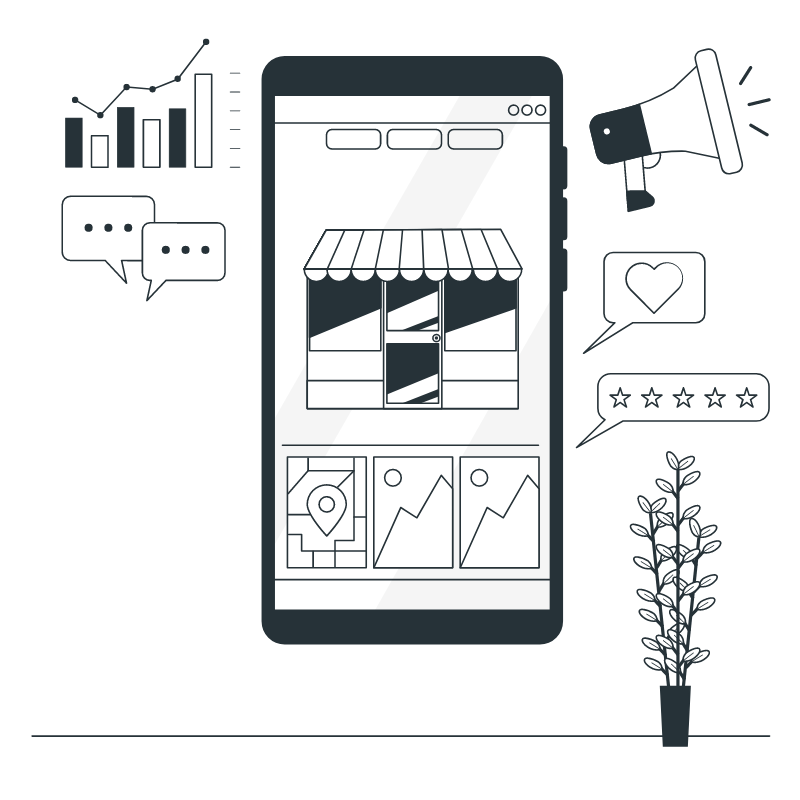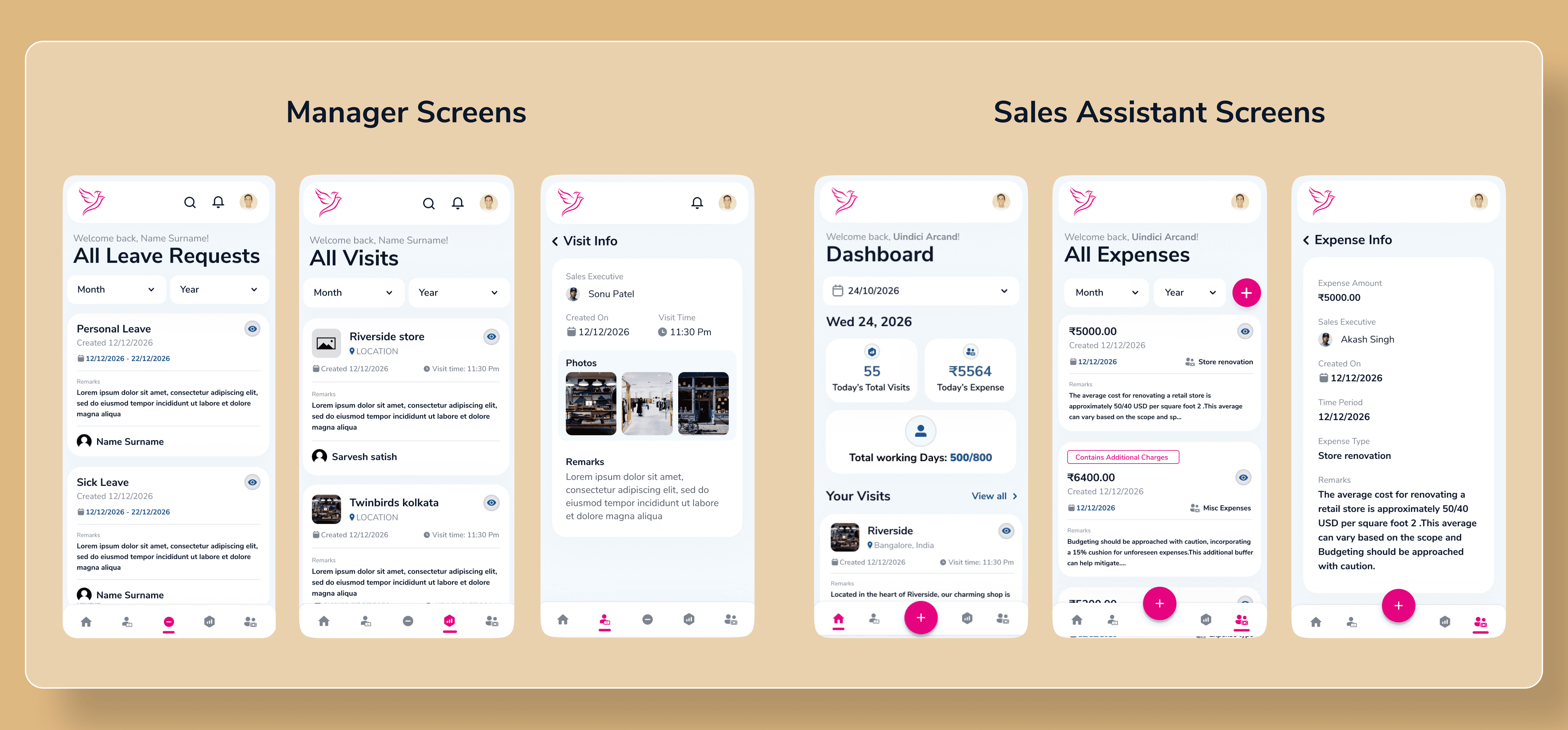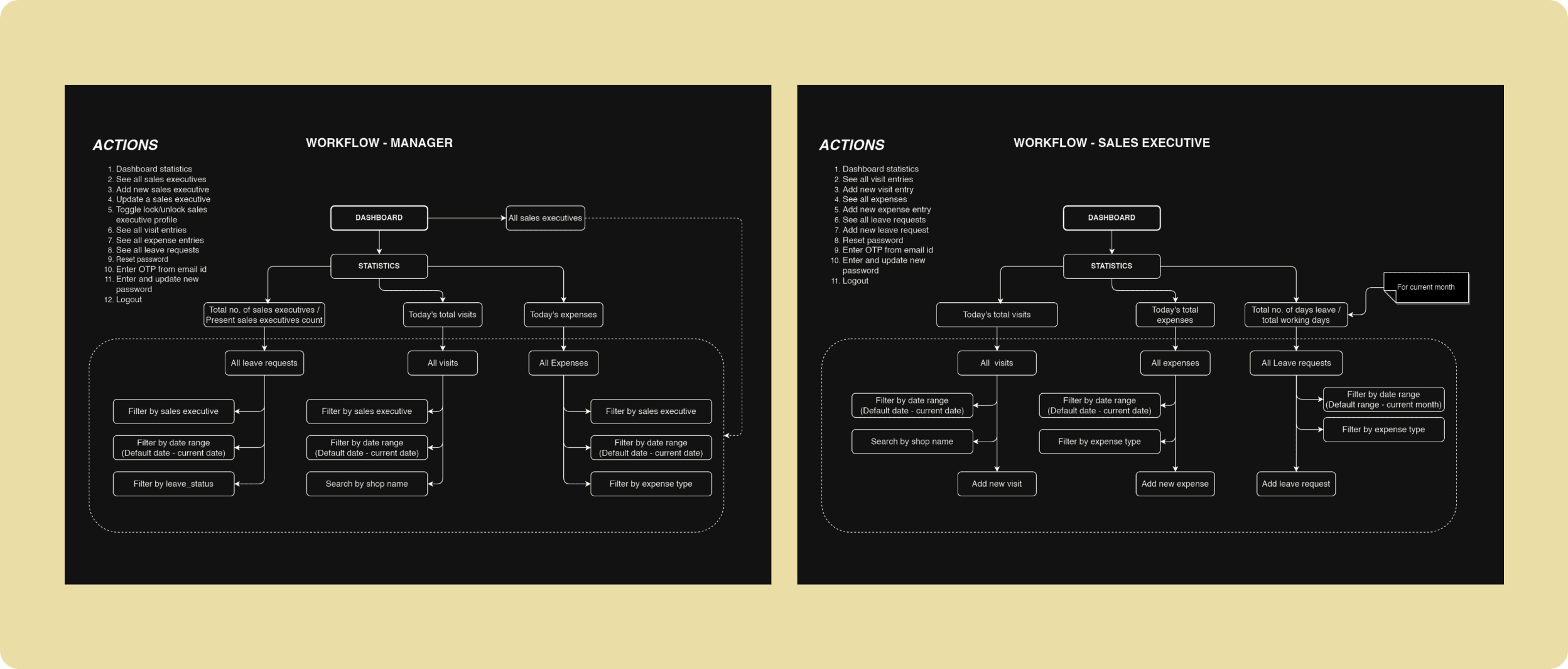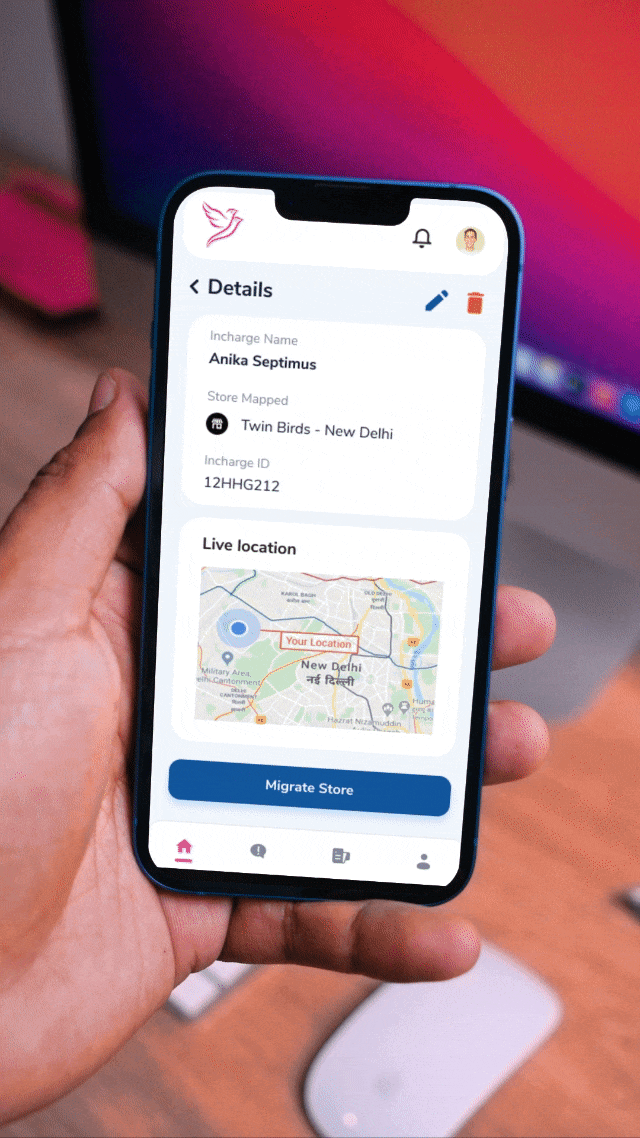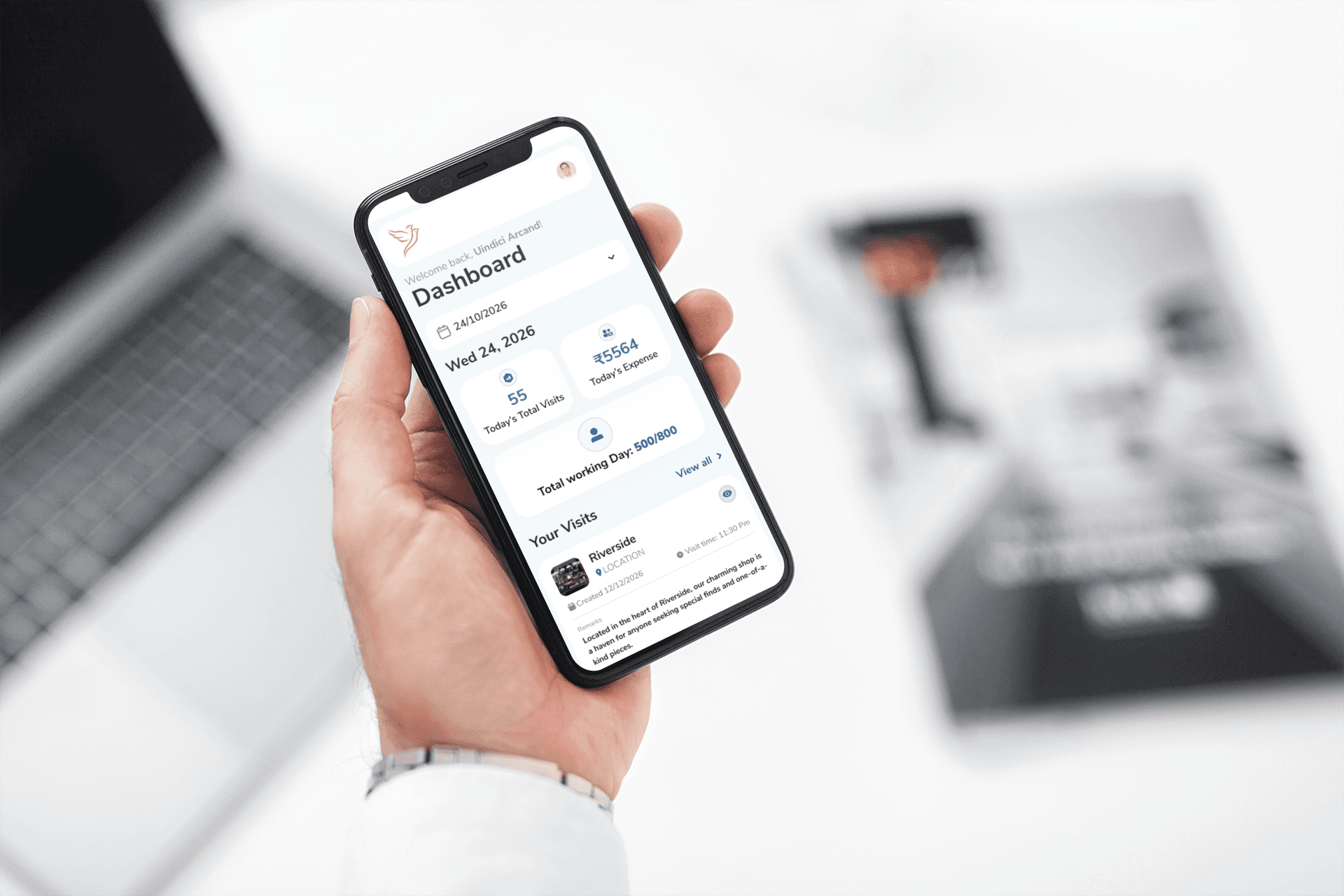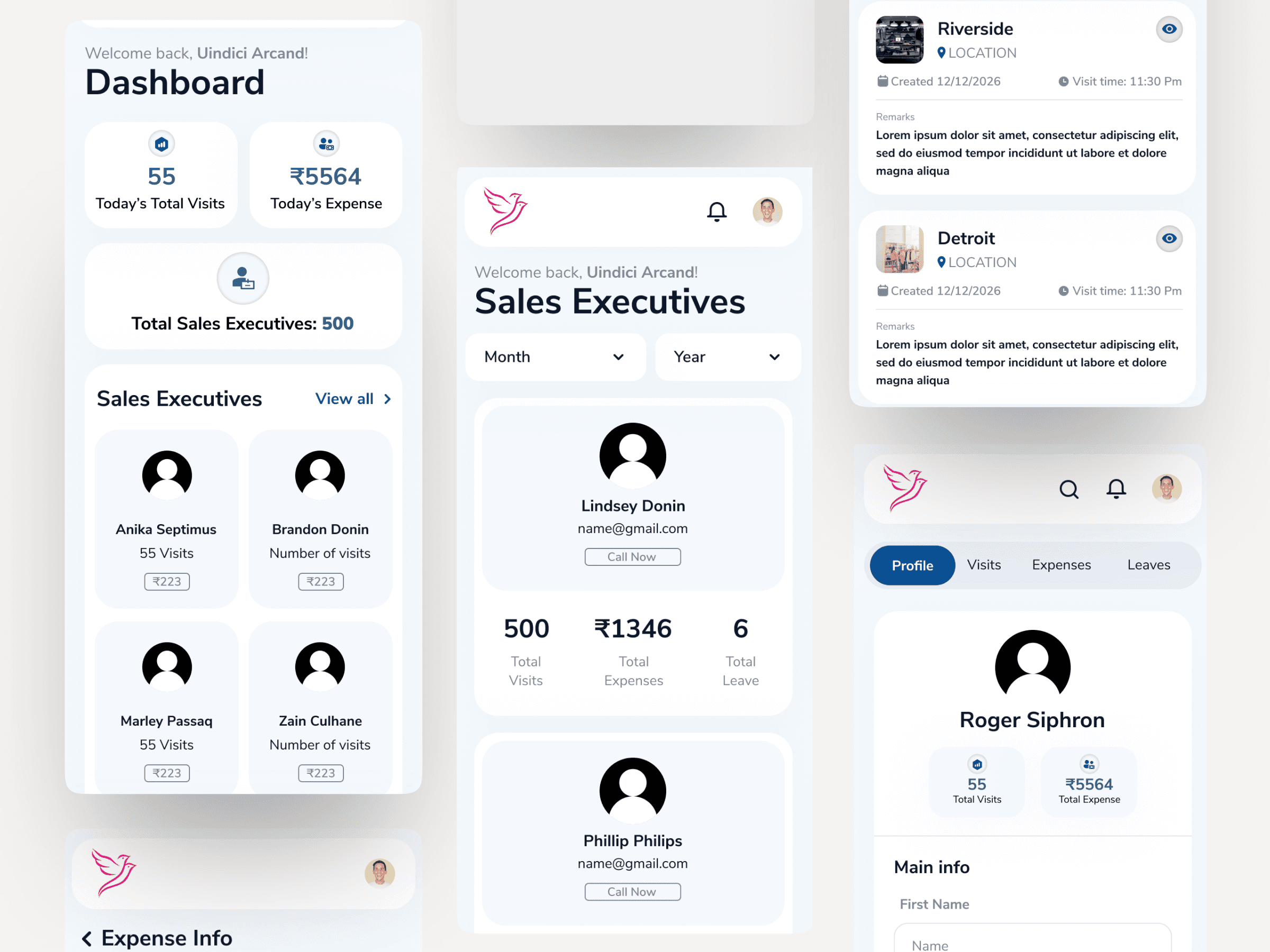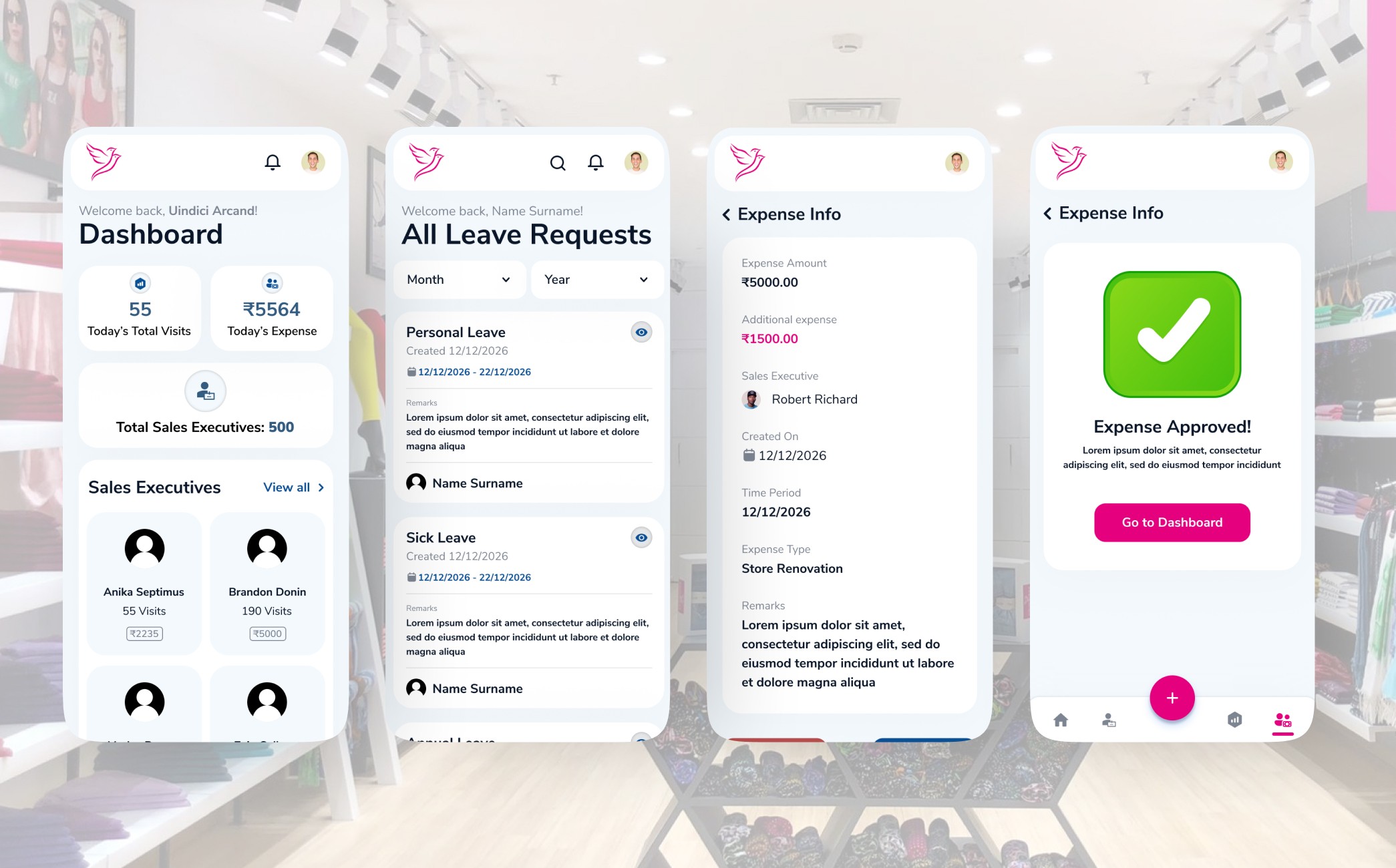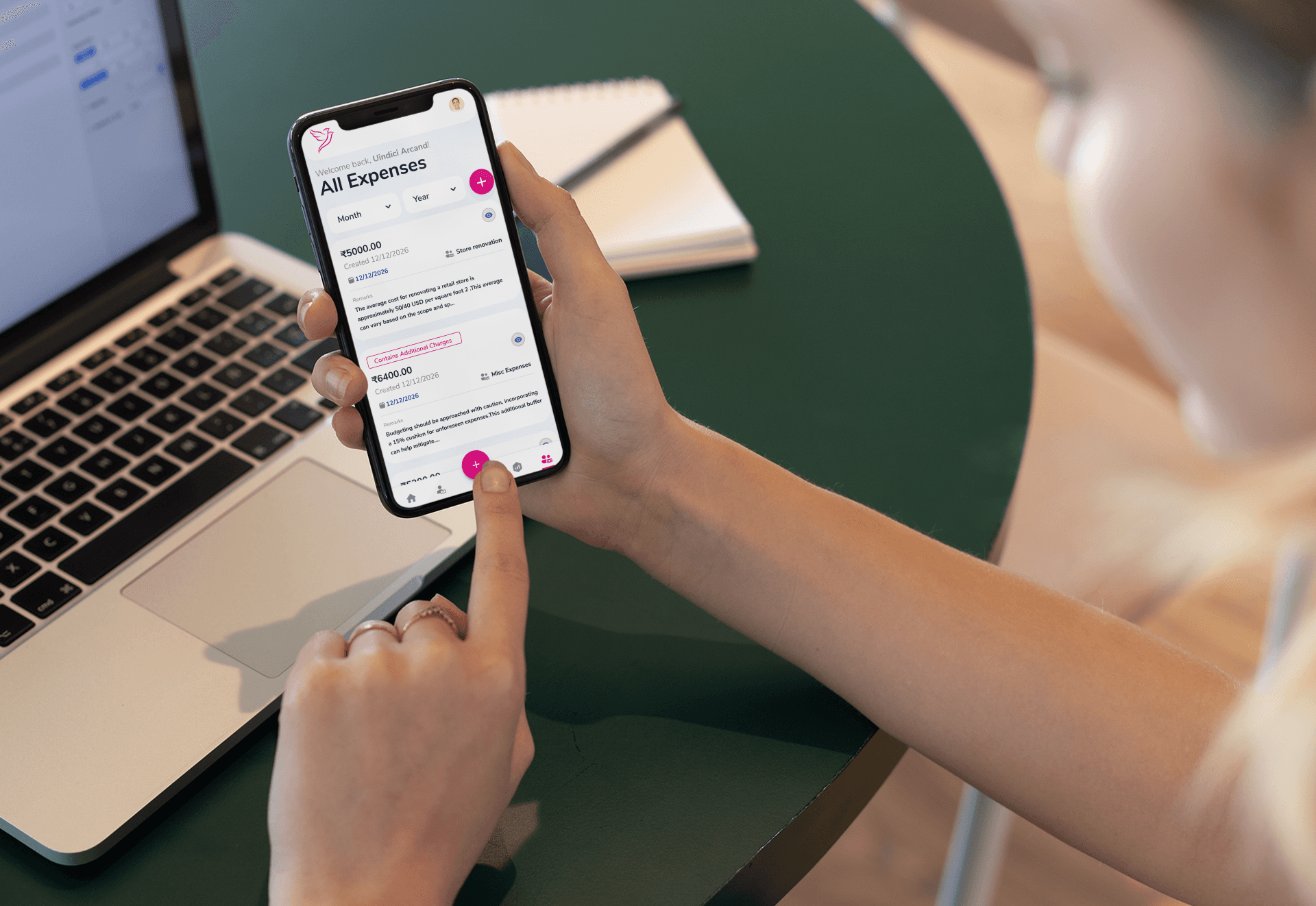
Introduction
Introduction
I recently had the opportunity to work on a fascinating project with Twin Birds, a clothing brand, that needed a streamlined solution for their internal operations. This case study explores the development of comprehensive EBO system tailored for Twin Birds aimed at handling internal operations such as expense tracking, sales visits and leave requests, thus enhancing overall productivity and streamlining management processes.
Problem Statement
Twin Birds required a EBO system to better manage and analyze data from sales activities, expenses and leave requests, to improve decision-making and increase workflow efficiency.
2X
Increase In
Team Collaboration
3X
Boost In
User Engagement
25%
Uptick in
Overall work output
Design Process
Discovery Phase
Objective
Understand the pain points and needs of the internal team members.
Interviews: Conducted one-on-one interviews with different team members, including sales representatives, managers and customer service agents, to understand their daily tasks and challenges.
Surveys: Distributed surveys to gather quantitative data on the frequency and types of issues faced by employees.
Observation: Spent time shadowing employee workflow examples to see them in action and identify inefficiencies.
Key Findings
Communication Gaps: There were significant delays in communication between departments, leading to missed deadlines and errors.
Manual Data Entry: Employees spent a lot of time on manual data entry, which was prone to errors and redundancy.
Lack of Integration: Existing tools were not well-integrated, causing data silos and difficulty in accessing information.
Business Research
Objectives
Align the EBO system with business goals.
Ensure the solution supports business growth and scalability.
Understand industry standards and best practices.
Design Process
User Stories
With all the research in hand, we developed user stories to guide our design process. Here are a few examples:
As a Manager,
I want to monitor team performance and customer satisfaction, so I can make informed decisions and improve operations.
I want real-time updates on leave requests and expenses to manage processes efficiently.
As a Sales Assistant,
I want to quickly access customer data and sales history, so I can provide personalized service and close deals efficiently.
I want to enter my daily expense, shop visits and leave requests.
Design and Development
Wireframing
We started with low-fidelity wireframes to map out the basic structure and flow of the CRM system. These wireframes focused on key functionalities:
Overview: A customizable overview of tasks, notifications, and key metrics.
Customer Profiles: Detailed pages showing Visits, Leave Requests and Expenses.
Inventory Management: Real-time Expense management, Leave alerts, and Store information.
Prototyping
With the wireframes approved, we moved on to high-fidelity prototypes using Figma. These prototypes included more detailed designs and interactions, providing a realistic feel of the final product.
Final Designs
Dashboard for Quick Access: A centralized hub was designed to offer easy access to daily tasks, appointments and comprehensive views for managers to oversee operations.
Customizable Filters: The system was equipped with filtering options, allowing users to refine information based on specific criteria, enhancing user control and visibility.
User-Friendly Additions: Add New Entry functionality were incorporated for sales visits, expenses and leaves, simplifying and streamlining daily operational tasks for sales executives.
Manager Oversight: Comprehensive views and strict control functionalities were embedded within the system, providing managers with the necessary tools to effectively supervise and manage their teams.
Results
Improved Productivity: The tailored EBO system significantly enhanced task management and streamlined operational processes, resulting in increased productivity and efficiency.
Enhanced Decision-Making: The functionality and insights embedded in the system led to better-informed decision-making for the management, positively impacting organizational outcomes.
User Satisfaction: The user-centric design and tailored functionalities received positive feedback from sales executives and managers, highlighting increased user satisfaction and ease of use.
Launch and Beyond
Rollout
The CRM system was rolled out in phases, starting with a pilot group. This allowed us to address any issues before a full-scale launch. Feedback from the pilot group was overwhelmingly positive, highlighting improved efficiency and user satisfaction.
Continuous Improvement
Post-launch, we set up a feedback loop to continuously gather insights from users. This ongoing feedback helps us to make iterative improvements and ensure the EBO system evolved with the brand's need.
Conclusion
This project was more than just designing a EBO system, it was about enhancing the internal operations of a beloved clothing brand. By empathizing with users, defining clear goals, and feedback based iterative approach, we created a solution that truly streamlined operations and empowered the team.
Reflecting on the Journey
Reflecting on this project, it's clear that thorough research and collaboration are key to creating successful UX solutions. By understanding both user needs and business goals, we were able to design a EBO system that truly streamlined operations and set the stage for future growth.

